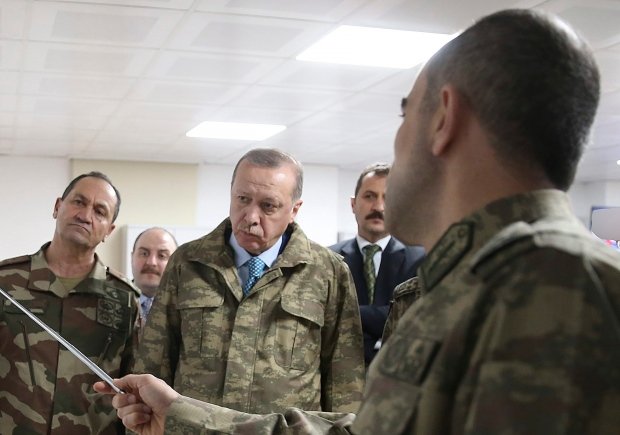Turkey claims it won’t stay in Syria

TEHRAN - On January 20th the Turkish Army started Olive Branch operation in the city of Afrin, in northern Syria, and since then Turkey’s operation, aimed at maintaining its national security, has been met with varying responses.
A reporter at Mehr news agency recently interviewed Jeffrey Lefebvre, a professor of political science at the University of Connecticut to further discuss the issue.
Following is the complete text of the interview with Professor Lefebvre.
Q. What are Turkey's reasons for attacking Afrin?
A. Turkish President Recep Tayyip Erdogan became extremely upset when on January 13 the Trump administration announced that the U.S. would support the creation of a 30,000-strong border security force of which approximately half its members would be comprised of members of the Syrian Kurdish People's Protection Units (YPG). Erdogan denounced this proposed force as a "terror army" the next day. Ankara views the YPG as linked to the PKK which Turkey considers a terrorist organization with which Ankara has been waging war since the late 1970s. So this was a preemptive political/military action brought on in part by Washington not coordinating its policy with Ankara. It also is not surprising as Erdogan has been threatening to take such an action for almost a year.
Q. What are Turkey's geopolitical goals for the attacks?
A. In terms of geopolitics, the Syrian Kurds (YPG) and their allies in the Syrian Democratic Forces (SDF) control a large swath of territory along the Turkish border with Afrin serving as the main base in northwestern Syria north of Aleppo. Ankara fears the consolidation of political power by the YPG/SDF forces would create a Kurdish power base that would fuel the PKK struggle in Turkey.
Q. President Erdogan has said that he has no intention of occupying Syria. Will Turkey leave Syria after the operation?
A. I think the Turks would prefer to get in and out as quickly as possible so not to be seen as an occupying power. Turkey was only able to carry out this operation with the quiet consent of Russia which had been operating a 'no-fly zone' over Afrin. Given Russia's alignment with the Assad regime, Turkey must be careful that this action is not seen as a territorial grab by Damascus. Although Damascus has essentially coexisted with the YPG as it led the battle to defeat the Islamic State in Syria, Assad also quietly applauds the degradation of the political and military position of the YPG/SDF in Syria.
Q. Why didn’t the international community take appropriate action against Turkey’s involvement in northern Syrian?
A. The main problem the YPG faces in gaining international support relates to Turkey's membership in NATO and the reluctance of its American and European allies to upset Ankara and endanger the alliance. Moreover, the YPG's alleged links to the PKK, which has been designated a terrorist organization by the U.S. State Department and the European Union, coupled with the seeming approval of this action by Russia and the Syrian governments, acts as a further constraint on international condemnation of Turkey.
